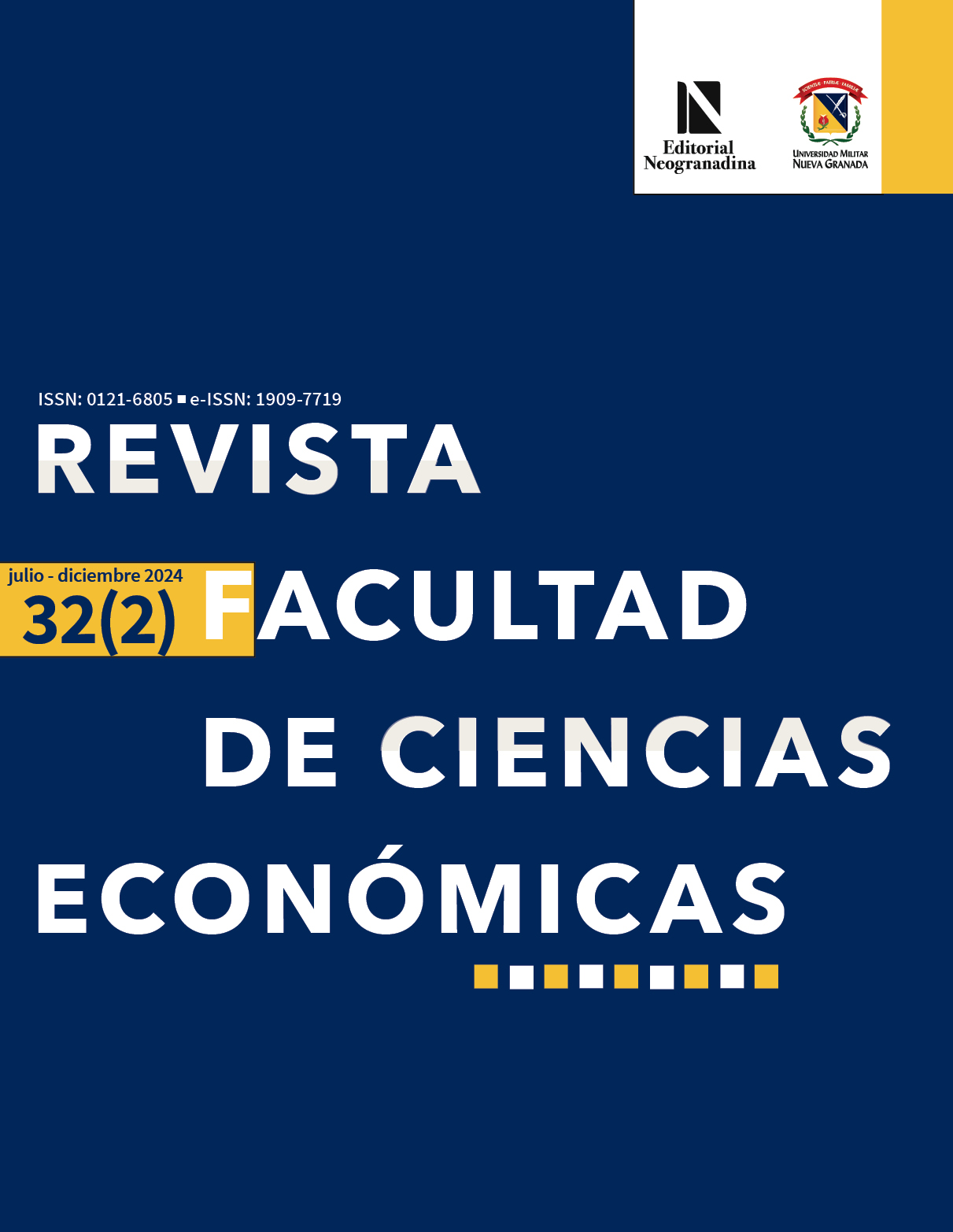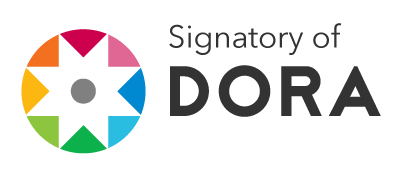Challenges Faced by SMES in the application of IFRS for SMES and their possible Solutions in the Context of Colombia
Abstract
his work aims to identify the problems associated with the application of International Financial Reporting Standards for SMEs (IFRS for SMEs) in Colombia and propose alternative solutions, all within the framework of regulatory compliance. The methodology employed will be qualitative, involving a documentary review of national, regional, and international sources to identify applica- tion issues related to ifrS for SMEs. Additionally, an analysis of IFRS for SMEs will be conducted based on experiences with these entities, complemented by semi-structured interviews with companies to gain a broader perspective on the identified problems. Preliminary results reveal a variety of difficulties in specific areas such as impairment and amortized cost. Generally, accountants within the entities do not recognize the benefits of the model, indicating that the efforts of responsible organizations should focus on raising awareness and providing training to understand, analyze, apply, and be aware of the constraints of the international model. As a future research direction, it is suggested to investigate ways to simplify specific measurement processes based on the unique conditions of the context.
Downloads
References
Aburuous, D. (2019). IFRS and institutional work in the accounting domain. Critical Perspectives of Accounting, 62, 1-15. https://doi.org/10.1016/j.cpa.2018.10.001
Álvarez-Gayou, J. (2003). Cómo hacer investigación cualitativa. Fundamentos y metodología. Paidós.
Arafat, I., Dunne, T. y Ahmed, A. H. (2020). Splitting Accountability Hairs: Anomalies in the Adaptation of IFRS for SMES in the UK and Ireland. Accounting in Europe, Taylor & Francis Journals, 17(2), 183-203. https://doi.org/10.1080/17449480.2020.1764601
Bahadir, B. y Valev, N. (2019). Credit information sharing and the shift in bank lending towards households. International Journal of Finance & Economics, 26(1), 60-72. https://doi.org/10.1002/ijfe.1776
Bakr, S. A. y Napier, C. J. (2020). Adopting the international financial reporting standard for small and medium-sized entities in Saudi Arabia. Journal of Economic and Administrative Sciences, 38(1), 18-40.https://doi.org/10.1108/JEAS-08-2018-0094
Bautista-Mesa, R., Muñoz-Tomás, J. M. y Horno-Bueno, M. (2019). Does the IASB know the needs of SMES? A comparative analysis between the IFRS for SMES and full IFRS due processes. Revista de Contabilidad Spanish Accounting Review, 22(2), 203-217. https://doi.org/10.6018/rcsar.382261
Beneish, M. D., Miller, B. P. y Yohn, T. L. (2015). Macroeconomic evidence on the impact of mandatory IFRS adoption on equity and debt markets. Journal of Accounting and Public Policy, 34(1), 1-27.https://doi.org/10.1016/j.jaccpubpol.2014.10.002
Bonito, A. y Pais, C. (2018). The macroeconomic determinants of the adoption of IFRS for SMES. Revista de Contabilidad, 21(2), 116-127.https://doi.org/10.1016/j.rcsar.2018.03.001
Cai, L., Rahman, A. y Courtenay, S. (2014). The Effect of IFRS Adoption Conditional Upon the Level of Pre-adoption Divergence. The International Journal of Accounting, 49(2), 147-178. https://doi.org/10.1016/j.intacc.2014.04.004
Carneiro, J., Lima, L. y Craig, R. (2017). Assessing international accounting harmonization in Latin America. Accounting Rusell, (41), 172-184. https://doi.org/10.1016/j.accfor.2017.06.001
Chand, P., Patel, A. y White, M. (2015). Adopting International Financial Reporting Standards for Small and Medium-sized Enterprises. Australian Accounting Review, 25(73), 139-154. https://doi.org/10.1111/auar.12067
Congreso de la República de Colombia. (2000, 10 de julio). Ley 590. Por la cual se dictan disposiciones para promover el desarrollo de las micro, pequeñas y medianas empresa. https://www.funcionpublica.gov.co/eva/gestornormativo/norma.php?i=12672
Congreso de la República. (2024). Decreto 2420 de 2015. Por medio del cual se expide el Decreto Único Reglamentario de las Normas de Contabilidad, de Información Financiera y de Aseguramiento de la Información y se dictan otras disposiciones. https://www.funcionpublica.gov.co/eva/gestornormativo/norma.php?i=76745
De Lima, V. S., De Lima, G. A. S. F. y Gotti, G. (2018). Effects of the Adoption of IFRS on the Credit Market: Evidence from Brazil. The International Journal of Accounting, 53(2), 77-101. https://doi.org/10.1016/j.intacc.2018.04.001
Durguti, E. A. y Arifi, E. A. (2021). Challenges and difficulties for micro-businesses in adapting IFRS for SMES requirements: Kosovo evidence. Journal of Liberty and International Affairs, Institute for Research and European Studies - Bitola, 7(3), 85-101. https://doi.org/10.47305/JLIA2137085d
De Morais, M. y Macagnan, C. B. (2015). IFRS for SMES: Perceptions of accountants in the State of Mato Grosso (from Brazil) on continuing professional education. Standardization of Financial Reporting and Accounting in Latin American Countries, 295-317. IGI Global.
https://doi.org/10.4018/978-1-4666-8453-9.ch013
Franco-Ángel, M. y Urbano, D. (2019). Caracterización de las pymes colombianas y de sus fundadores: un análisis desde dos regiones del país. Estudios Gerenciales, 35(150), 81-91. https://doi.org/10.18046/j.estger.2019.150.2968
Freitas, A., Altuwaijri, A. y Gupta, J. (2020). Did mandatory IFRS adoption affect the cost of capital in Latin American countries? Journal of International Accounting, Auditing and Taxation, 38, 100301. https://doi.org/10.1016/j.intaccaudtax.2020.100301
Gassen, J. (2017). The effect of IFRS for SMES on the financial reporting environment of private firms: an exploratory interview study. Accounting and Business Research, 47(5), 540-563.
https://doi.org/10.1080/00014788.2017.1314105
Haveroth, J., De Nez, E., Bilk, Â. y Klann, R. (2017). Características e Perspectivas Internacionais dos Diversos Grupos de Interesses em Relação à IFRS SME's. Revista de Educação e Pesquisa em Contabilidade, 4(4), 430-450. https://doi.org/10.17524/repec.v11i4.1636
Hýblová, E. (2019). The current problems of harmonization of accounting for small and medium-sized enterprises.https://doi.org/10.1080/1331677X.2018.1561317
Economic Research-Ekonomska Istrazivanja, 32(1), 604-621. https://doi.org/10.1080/1331677X.2018.1561317
Imam, A., Dunne, T. y Ahmed, A. (2020). Splitting Accountability Hairs: Anomalies in the Adaptation of IFRS for SMES in the uk and Ireland. Accounting in Europe, Taylor & Francis Journals, 17(2), 183-203. https://doi.org/10.1080/17449480.2020.1764601
International Financial Reporting Standard [IFRS]. (2015). NIIF para pymes. IFRS.
Krajnak, M. (2020). Financial Statement according to National or International Financial Reporting Standards? A Decision Analysis Case Study from the Czech Republic at Industrial Companies. Inzinerine Ekonomika-Engineering Economics, 31(3), 270-281. https://doi.org/10.5755/j01.ee.31.3.22715
López, H., Jara, M. y Cabello, A. (2020). IFRS adoption and accounting conservatism in Latin America. Academia Revista Latinoamericana de Administración. DOI: 10.1108/ARLA-10-2019-0209 https://doi.org/10.1108/ARLA-10-2019-0209
Masca, E. (2012). Influence of Cultural Factors in Adoption of the IFRS for SMES. Procedia Economics and Finance (3), 567-575. https://doi.org/10.1016/S2212-5671(12)00197-9
Ministerio de Trabajo. (2019, 26 de septiembre). MiPymes representan más de 90 % del sector productivo nacional y generan el 80 % del empleo en Colombia: ministra Alicia Arango. https://www.mintrabajo.gov.co/prensa/comunicados/2019/septiembre/mipymes-representan-mas-de-90-del-sector-productivo-nacional-y-generan-el-80-del-empleo-en-colombia-ministra-alicia-arango
Ministerio de Comercio, Industria y Turismo. (2019, 5 de junio). Decreto 957. Por el cual se adiciona el capítulo 13 al Título 1 de la Parte 2 del Libro 2 del Decreto 1074 de 2015, Decreto Único del Sector Comercio, Industria y Turismo y se reglamenta el artículo 2° de la Ley 590 de 2000, modificado por el artículo 43 de la Ley 1450 de 2011. https://www.mincit.gov.co/getattachment/555adb9d-8a48-45f3-a2a5-1ee9b35b2d09/Decreto-957-Por-el-cual-se-adiciona-el-capitulo-13.aspx
Ministerio de Comercio, Industria y Turismo. (2019, 26 de mayo). Decreto 1074. Por medio del cual se expide el Decreto Único Reglamentario del Sector Comercio, Industria y Turismo. https://www.funcionpublica.gov.co/eva/gestornormativo/norma.php?i=76608
Ministerio de Comercio, Industria y Turismo. (2015, 14 de diciembre). Decreto 2420. Por medio del cual se expide el Decreto Único Reglamentario de las Normas de Contabilidad, de Información Financiera y de Aseguramiento de la Información y se dictan otras disposiciones. https://www.mincit.gov.co/getattachment/555adb9d-8a48-45f3-a2a5-1ee9b35b2d09/Decreto-957-Por-el-cual-se-adiciona-el-capitulo-13.aspx
Mnif, Y. y Borgi, H. (2020). Compliance with IFRS for related party transactions across eight African countries: do corruption and government quality matter? International Journal of Accounting, Auditing and Performance Evaluation, 16(1), 81-107. https://doi.org/10.1504/IJAAPE.2020.106780
Moncayo, D. y Montenegro, C. (2016). Information security risk in SMES: A hybrid model compatible with IFRS: Evaluation in two Ecuadorian SMES of automotive sector. 2016 6th International Conference on Information Communication and Management (ICICM), 115-120. DOI: 10.1109/infocoman.2016.7784226 https://doi.org/10.1109/INFOCOMAN.2016.7784226
Muñoz-Mendoza, J. A., Sepúlveda-Yelpo, S. M., Veloso-Ramos, C. L. y Delgado-Fuentealba, C. L. (2019). Effects of foreign ownership and International Financial Reporting Standards on debt maturity in Chilean firms. Estudios Gerenciales, 35(153), 416-428. https://doi.org/10.18046/j.estger.2019.153.3374
Nurunnabi, M., Jermakowicz, E. y Donker, H. (2019). Implementing ifrs in Saudi Arabia: evidence from publicly traded companies. International Journal of Accounting & Information Management, 28(2), 243-273. https://doi.org/10.1108/IJAIM-04-2019-0049
Park, H., Ruiz Ortega, C. y Tressel, T. (2015). Determinants of long-term versus short-term bank credit in EU countries. Policy Research Working Paper Series 7436, The World Bank. http://documents.worldbank.org/curated/en/942521468184773633/Determinants-of-long-term-versus-short-term-bank-credit-in-EU-countries https://doi.org/10.1596/1813-9450-7436
Patiño, R., Valero, G., Plata, M. y González, S. (2017). Efectos de las normas contables internacionales en las Instituciones de Educación Superior en Colombia. Actualidad Contable FACES, 20(35), 58-82.https://www.redalyc.org/journal/257/25751155004/html/
Patiño, R. y Valero, G. (2018). Conveniencia de la aplicación de las Normas Internacionales de Información Financiera para Pymes en Colombia. Derechos Laborales, Fomento Económico, Informalidad y Desarrollo. En: Serie Documentos Estudios Legislativos n.o 9., 172-195. Congreso de la República de Colombia.
Patiño, R., Melgarejo, Z., Valero, G., Plata, M. (2023). Estudio de la regulación contable para Pymes en Colombia, una mirada desde las problemáticas en el contexto latinoamericano. Contabilidad y Negocios, 18(36), 57-86.https://doi.org/10.18800/contabilidad.202302.001
Perera, D., Chand, P. y Mala, R. (2019). Confirmation bias in accounting judgments: the case for International Financial Reporting Standards for small and medium‐sized enterprises. Accounting & Finance, 60(4), 4093-4119. https://doi.org/10.1111/acfi.12523
Perera, D. y Chand, P. (2015). Issues in the adoption of international financial reporting standards (IFRS) for small and medium-sized enterprices (SMES). Advances in Accounting, incorporating Advances in International Accounting, 31(1), 165-178. https://doi.org/10.1016/j.adiac.2015.03.012
Pérez, S. (2020). Dominio y percepción de las NIIF por los contadores públicos en Barranquilla, Colombia. Cuadernos de Contabilidad, 21, 1-15. https://doi.org/10.11144/Javeriana.cc21.dpnc
Pichler, S., Cordazzo, M. y Rossi, P. (2018). An analysis of the firms-specific determinants influencing the voluntary IFRS adoption: evidence from Italian private firms. International Journal of Accounting, Auditing and Performance Evaluation, 14(1), 85-104.
https://doi.org/10.1504/IJAAPE.2018.089418
Quagli, A. y Paolini, P. (2012). How is the for SMES accepted in the European context? An analysis of the homogeneity amoung European countries, users and preparers in the European Commission Questionnaire. Advances in Accounting, incorporating Advances in International Accounting, (28), 147-156. https://doi.org/10.1016/j.adiac.2012.03.003
Quagli, A., Avallone, F., Ramassa, P. y Di Fabio, C. (2020). Someone else's problem? The IFRS enforcement field in Europe. Accounting and Business Research, 51(3), 246-270.
https://doi.org/10.1080/00014788.2020.1802217
Rudzani, S. y Manda, D. C. (2016). An assessment of the challenges of adopting and implementing IFRS for SMES in South Africa. Problems and Perspectives in Management, 14(2), 121-221.https://doi.org/10.21511/ppm.14(2-1).2016.10
Salazar, É. (2011). Análisis de las implicaciones no financieras de la aplicación de la NIIF para pyme en las medianas entidades en Colombia. Cuadernos de Contabilidad, 12(30), 211-241. https://revistas.javeriana.edu.co/index.php/cuacont/article/view/3116
Salazar-Baquero, E. (2013). Efectos de la implementación de la NIIF para las pymes en una mediana empresa ubicada en la ciudad de Bogotá. Cuadernos de Contabilidad, 14 (35), 395-414.
Schutte, D. y Buys, P. (2011). A Critical Analysis of the Contents of the IFRS for SMES - a South African Perspective. SAJEMS, (2), 188-209. https://doi.org/10.4102/sajems.v14i2.61
Solá, J. (2019). Evaluación literaria sobre contabilidad creativa aplicada a las NIIF. Podium, 35, 23-42. DOI:10.31095/podium.2019.35.2 https://doi.org/10.31095/podium.2019.35.2
Tawiah, V. y Gyapong, E. (2021). International financial reporting standards, domestic debt finance and institutional quality: Evidence from developing countries. International Journal of Finance & Economics, 28(3), 2915-2936. https://doi.org/10.1002/ijfe.2575 https://doi.org/10.1002/ijfe.2575
Todescato, R., Mallmann, C. y Kremer, A. (2017). Aplicação das ifrs para pequenas e médias empresas na perspectiva dos prestadores de serviços contábeis. Revista Contabilidade e Controladoria, 9(2), 59-77.https://doi.org/10.5380/rcc.v9i2.49804
Urvina-Barrionuevo, R., Mayorga-Mayorga, F., Álvarez-Mayorga, E. y Lavín, J. M. (2017). Prototype application using xbrl for financial statements according to IFRS in Ecuador. 2017 Fourth International Conference on eDemocracy & eGovernment (ICEDEG), 205-209. https://doi.org/10.1109/ICEDEG.2017.7962535
Uyar, A. y Haydar, A. (2013). Perceptions and knolewdge of accounting profesionals on IFRS for SMES: Evidence from Turkey. Research in Accounting Regulation, (25), 77-87. https://doi.org/10.1016/j.racreg.2012.11.001
Vasilachis, I. (2006). Estrategias de Investigación cualitativa. Gedisa Editorial.
Vera-Colina, M., Melgarejo-Molina, Z. y Mora-Riapira, E. (2014). Acceso al financiamiento en Pymes colombianas: unamirada desde sus indicadores financieros. innovar, 24(53), 149-160.
Zhaoyang, G., Jeff, N. y Tsang, A. (2019). Mandatory IFRS adoption and management forecasts: The impact of enforcement changes. China Journal of Accounting Research, 12(1), 33-61.
Funding data
Copyright (c) 2024 Revista Facultad de Ciencias Económicas

This work is licensed under a Creative Commons Attribution-NonCommercial-NoDerivatives 4.0 International License.











